Easing Anxiety Through Diet & Lifestyle
Anxiety is typically defined as a feeling of worry, nervousness, or unease, typically about an imminent event or something with an uncertain outcome. Dr. Henry Emmons, an integrative psychiatrist in Minnesota and the author of both The Chemistry of Joy and The Chemistry of Calm has referred to anxiety as “stress accompanied by fear.” I’m pretty sure everybody experiences anxiety at various points in his or her lifetime, and while unpleasant even in small amounts, anxiety from time to time is likely part of the “normal” human experience.
When anxiety becomes a regular part of one’s life, however, it can cause much pain and suffering and can seriously disrupt one’s best efforts to show up in the world and consistently be one’s best self. It then becomes critical to address it from as many angles as possible – nutritionally, mentally, emotionally, and spiritually. While none of the suggestions below is likely a magic bullet to end all anxiety, approaching anxiety from a holistic perspective can significantly reduce the frequency with which one experiences it and help dissolve anxiety’s hold on one’s life over time.
20 Tips for Easing Anxiety Through Diet & Lifestyle
- Eliminate all caffeine, even if it’s just a temporary experiment. Everyone metabolizes caffeine a little bit differently; some people seem to be able to handle it just fine while others experience a blood sugar rush, irritability, hyperactivity, and/or anxiousness. Eliminate all caffeine (coffee, black tea, soda, chocolate, perhaps even green tea) for several weeks and track your mood and anxiety. Note: if you are addicted to caffeine, you will undoubtedly feel worse before you feel better when you begin to cut it out. Give yourself at least 5 days to get over the headaches, fatigue, and crabbiness before you begin making any assumptions about the need for caffeine in your life.
- Learn how to balance your blood sugar. When we consume too many sugars, refined carbohydrates, and caffeine, or when we feed ourselves irregularly, we can send our blood sugar on what I call “the blood sugar roller coaster,” which is a very stressful experience on the body and can both create and exacerbate anxiety. Balancing blood sugar begins with a balanced breakfast eaten within an hour of waking up and a steady diet of whole foods throughout the day. (This is a big topic. See my Balancing Blood Sugar handout for a full list of tips.)
- Make sure your vitamin D level is adequate. Vitamin D deficiencies have been linked to a long laundry list of health concerns, with anxiety being one common byproduct. Your doctor can order a simple blood test to see whether or not your levels are sufficient. Make sure your vitamin D is somewhere between 50-80 ng/ml, which is considered the healthy range by functional medicine physicians. (Some doctors still consider anything over 35 ng/ml to be sufficient. I disagree.)
- Experiment with magnesium-rich foods and/or a magnesium supplement. Magnesium is a calming mineral responsible for the proper functioning of 325 different enzymes in the body. It’s the fourth most abundant mineral in the body, yet it is estimated that 80% of the nation is deficient in magnesium given our preference for processed foods and the depleted state of our soils. Supplementing with magnesium is safe and often yields positive results quickly. Magnesium-rich foods include halibut, most nuts and seeds, leafy green vegetables, beans, and more. My favorite magnesium supplement is Ancient Minerals Magnesium spray. Please google “Claudine Arndt, magnesium, Experience Life” to read my full magnesium article about the importance of this mineral.
- Consume more foods rich in omega 3 fatty acids, and consider trying a fish oil supplement. Omega 3 fatty acids feed the brain, calm the nervous system, cool chronic inflammation, and help heal the intestinal tract. By supporting all of these areas of health, omega 3’s can also calm one’s anxiety. Omega 3 rich foods include salmon, sardines, anchovies, flaxseed, chia seeds, sea vegetables, walnuts, and omega 3-enriched eggs. Green Pastures Fermented Cod Liver Oil is a great fish oil supplement.
- Mind your microbiome. You might be asking, what the heck is a microbiome? Your microbiome is the ecosystem that lives in your gut, consisting of trillions of bacteria, yeasts, and protozoa that are meant to live harmoniously with one another. Science is now busting at the seams with data proving that when the balance is off in that ecosystem, your neurotransmitter balance will likely be off and symptoms of depression, anxiety, OCD, ADD, and more may surface. There are many steps to take when working to balance one’s microbiome; a solid first step is to get probiotics – or good bacteria – into your body. I often recommend Florastor as a great brand with which to start.
- Breathe deeply. Every day. As much as you possibly can. When we breathe deeply into the diaphragm rather than into the chest, we trigger “relaxation lobes” at the bottom of our lungs that activate the parasympathetic nervous system. The parasympathetic nervous system is sometimes referred to as the “rest and digest” nervous system and is only activated when we are in a non-emergency state. When we breathe deeply we also slow our heart rate and lower our blood pressure, both of which have a calming effect on the body. (Please see your Breathing Exercises handout.)
- Get plenty of sleep. Though many people feel they only need 5-6 hours of sleep a night, very few people can thrive on less that 7-8 (or more!) hours per night. When we are sleep deprived, we force ourselves into a stress response, making episodes of anxiety much more likely.
- Practice meditation daily. Even if it’s only 10 minutes. The benefits to a regular meditation practice are infinite, including reduced anxiety. If you don’t know where to start, search for a beginning meditation class in your town or hire a private meditation coach to help. Meditation is becoming more mainstream every year; you may even be able to find a class through your community education program or online. And remember – the goal of meditation isn’t to eliminate all thoughts; the goal of meditation is to get in touch with the calm place in the center of your being, giving yourself a break from the constant noise of our busy world.
- Experiment with adaptogenic herbs like Ashwaganda, Rhodiola, Holy Basil, ginsengs, and more. Adaptogens are herbs shown to enhance one’s ability to resist stress, anxiety, trauma, and fatigue, and they work! You will likely find a wide selection of adaptogens to choose from at your health food store; some will be blends, and others will be include just a single herb. I like the tinctures available from Herb Pharm and usually recommend people start with about 1/4 of the amount recommended on the bottle and see if they notice a difference. If not, then they can gradually increase the dosage.
- Spend 15 minutes a day acknowledging your worries in a tangible way. Creating a list of your top ten worries or stressful events allows you to “capture” those worries on paper (or on your computer), which often helps one to relax. This “brain dump” also allows you to strategize and deal with each problem directly, if you so choose, so they don’t balloon to an unmanageable size.
- Oz cites lemon balm as one of his favorite remedies for anxiety. He suggests taking 400 milligrams twice daily, which he says will both help heal your GI tract, thus preventing your stomach from reacting to your worried thoughts, and calm the cycle of worried thinking itself.
- Laugh it off. Cultivate a good sense of humor and practice laughing as often as possible. Studies prove that even if you “fake laugh,” you get an instant hit of dopamine, the brain chemical that controls feeling of pleasure and reward. Laughing and “fake laughing” also help reduce levels of cortisol, the chemical associated with stressful events and situations.
- Regularly schedule relaxation into your life. If you struggle with anxiety, make sure you schedule 30 minutes every day to do something that you consider relaxing, whether that something is yoga, tai chi, sitting with a cup of tea, reading a book, petting your cat, staring at the sunset, looking at photos, art, listening to a podcast, or going for a walk. By building relaxation into your life, you may be able to preempt some anxiety.
- Exercise. Find forms of movement you enjoy and do something every day to keep your body moving. Exercise relieves tension and stress and facilitates the production of a whole host of beneficial stress-releasing hormones.
- Become aware of what triggers your anxiety. Is it work, family, illness, or something else you can identify? Take some time to sleuth out your triggers, then journal about these triggers or talk with a therapist or someone else you trust to develop strategies for coping.
- Become okay with “good enough” rather than striving for perfection. Perfection is impossible. Aim to do your best every day and practice being proud of your best efforts.
- Limit alcohol. Many people turn to alcohol to help them relax, but alcohol can actually induce and exacerbate the symptoms of anxiety – and it can even trigger panic attacks. For many people, alcohol is a toxin that can cause havoc to proper physical and mental functioning.
- Evaluate your medications with your physician. Certain medications have some ugly side effects — they can cause anxiety symptoms or even trigger an anxiety attack. Prescription medications to watch out for include thyroid drugs and asthma drugs, while over-the counter decongestants and combination cold remedies could also put you at risk for increased anxiety. And if you suddenly stop taking medication used to treat anxiety (benzodiazepines), this may cause anxiety symptoms, too.
- Get your thyroid checked. Your thyroid gland is a butterfly-shaped gland in the front of your neck that produces thyroid hormones. These hormones are important for regulating metabolism, energy levels, body temperature, and more. But if your thyroid is overproducing thyroid hormones, it can cause anxiety symptoms such as nervousness, irritability, heart palpitations, and sleeplessness. If you have anxiety symptoms along with swelling in your neck, weight loss, weakness, fatigue, or heat intolerance, ask your doctor to check your thyroid gland.


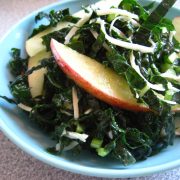
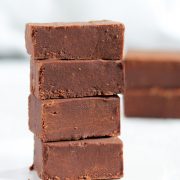
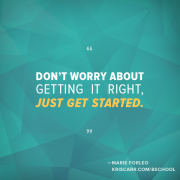
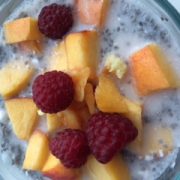
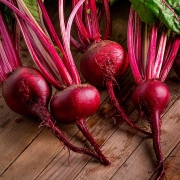
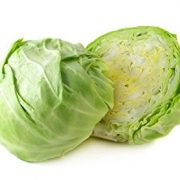



Great tips! I am currently 38 weeks pregnant and I think I have been dealing with anxiety as my due date draws nearer. These tips would be really helpful to me in managing my anxiety. Thanks for sharing!
Hi Aika, I’m so glad you found some of these tips helpful! Congratulations on your new honey. I trust everything will go beautifully with your delivery, and I bet you can’t wait to meet her. Congrats!